The Kei Kerfuffle: States Struggle Over What To Do With These Tiny Trucklets
Yes, the sales of little Japanese Kei trucks (it’s pronounced “kay”) were up in 2023, one reason they have been getting a lot of attention from the media. The compact haulers, built to conform with Japan’s keijidōsha class of light vehicles, are practical as well as cheap and charming, so smitten American buyers have been importing them from their home markets at a higher rate. But we should keep things in perspective: According to the Japanese Used Motor Vehicle statistics, 7594 Kei trucks were imported into the U.S. last year. Ten years ago, before many of these Japanese market vehicles met the 25-year age limit to legally import into the U.S., that number was 797.
Meanwhile, Ford sold 750,789 new F-150s in 2023. Those who suggest that the backlash from state governments seeking to keep Kei trucks off the road is even partly motivated by the desire of manufacturers of full-sized pickups to keep the market for themselves, a view that has also been represented in the media, are probably incorrect.
Governments keeping them off the road is the other reason the tiny, right-hand-drive Kei trucks have been in the news, and we blame Rhode Island. While the federal government writes the rules controlling the importation of foreign market vehicles like Kei trucks, it’s up to individual states whether or not you can register and drive them on the road. According to multiple sources, Kei trucks are street-legal in 19 states. But in Rhode Island there are only 30 or so Kei trucks on the road so, as they’ve done in many places, Kei trucks have sort of driven under the radar when it came to the law.
Until this happened, as told last month by the Providence Journal: “Imagine this: You import a mini-truck from Japan after calling the Rhode Island Division of Motor Vehicles and being assured that you’ll be able to register it here. Several years later, you receive a notice from the DMV: The Japanese mini-truck’s registration has been revoked, and you’ll need to hand over the license plates.”
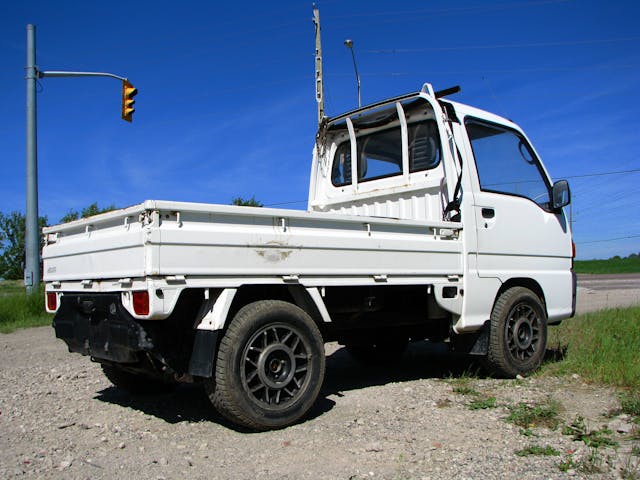
One of those owners was a constituent of State Senator Louis DiPalma, who began asking questions. Apparently, the state DMV had, since 2021, been re-evaluating its decision to issue registrations for Kei trucks based on existing law, and recently started demanding that owners return their license plates.
Publicity ensued, and the story was picked up by a raft of media sources, and officials in other states began asking questions about what their DMVs were doing about the danger represented by allowing Kei-sized vehicles on the road. Citizens began picking sides, and the next thing you know, outlets like NBC News and The Economist are reporting on the Kei kerfuffle.
And the whole mess is confusing. In Wyoming, you can drive your Kei truck on any road but an interstate highway. In Georgia, the Motor Vehicle Department conclusively insists that Kei vehicles “are not ‘street legal.’ Kei vehicles are barred from titling and registration.” That said, “…both customers and county tag offices have been confused by the title and registration laws relating to these vehicles. Due to this confusion, certain customers have successfully, albeit unlawfully, had their Kei vehicles titled and registered in Georgia.” Gee, whose fault is that?
Angry Kei truck owners have pointed out that motorcycles and scooters are allowed on public roads, as are hundred-year-old, 20-horsepower Ford Model Ts: Are they any safer than a Kei truck? In some states, the battle over Kei rights is getting downright contentious. Kei truck owners are banding together to advocate for fair treatment; the Texas Kei Vehicle Advocates, for example, report that they’ve already been successful in getting the state to reverse its ban on titling Kei trucks. A memo issued April 4 by the Texas Department of Motor Vehicles said, “The department has revised the titling and registration requirements for these vehicles. Effective immediately, mini vehicles are required to be titled and must be registered if operated on public roadways.”
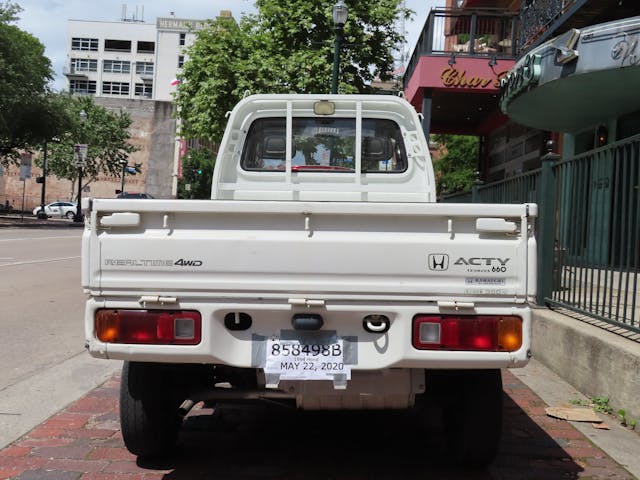
This cultish American enthusiasm for Kei trucks likely calls for an explanation. While we are talking about the tiny, single-cabover pickups or microvans that you’ve likely seen, say, doing maintenance on a golf course, “Kei” refers to more than that.
Kei is short for kei jidōsha, which is Japanese for “light motor vehicle.” A vehicle that is considered a Kei—and this has changed over the years, dating back to 1949—is, since late 1998, the following: Has an engine no larger than 660cc (about 40 cubic inches); no more than 63 horsepower; is no longer than 3.4 meters (just over 11 feet), and no wider than 1.48 meters (just under five feet). By comparison, the 2024 Nissan Versa, one of the few remaining small cars sold here, is 14.7 feet long and has 122 horsepower.

Since—obviously—the tiny Kei is not built to the U.S. Federal Motor Vehicle Safety Standards, only Kei vehicles that are older than 25 years can be imported into the U.S., because vehicles that elderly aren’t subject to FMVSS. That’s why the newest Kei vehicles you see for sale in America are typically 1999 models.
There are also Kei cars, including some sporty ones like the Honda Beat and Suzuki Cappuccino convertibles, and the Autozam AZ-1, built by Mazda and featuring gullwing doors: Those three are especially appreciated by American collectors, and quite a few have been imported. Decent Beats and Cappuccinos start at under $7000, while the rare Autozam AZ-1 starts at about $12,000, and can climb to over $30,000.
But it’s the Kei truck that is pulling in the (relatively) big numbers, and there are many companies in America that want to sell you one. Among them is Japan Car FL, based in Oldsmar, Florida, just south of Tampa. They have been importing JDM (Japanese Domestic Market) vehicles since 2018. The small, family-owned company advertises that they are licensed, bonded and insured, which is important in the JDM world, because not every company is.


Among Japan Car FL’s Kei vehicles is a 1999 Honda Acty Kei truck with four-wheel-drive, air conditioning and custom wheels for $10,850, and an air-conditioned 1999 Subaru Sambar Classic Kei microvan for $12,250. Each, says Japan Car FL, “comes with a clean Florida title, and is ready to be driven home on the day of purchase.”
While Japan Car FL handles all types of JDM imports, the business is driven by Kei trucks and microvans, said owner Lana Kashchuk. “There has been an increase in queries as they become more and more popular. It’s the top seller.”
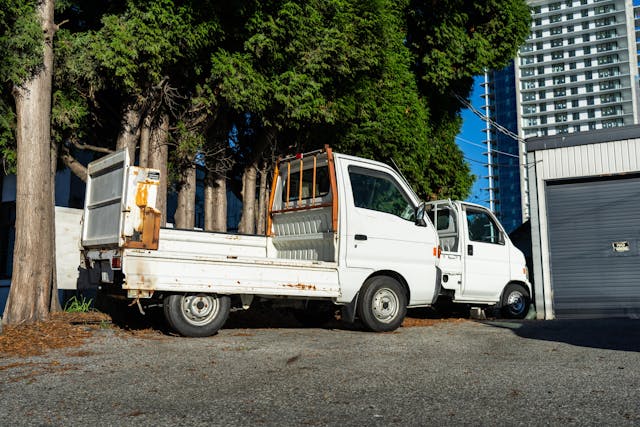
Buyers vary. Some customers use them for work—Kei trucks are affordable, maneuverable, and their small engines are easy on gas. Many have six-foot beds that rival bigger trucks in cubic-foot capacity. “We have a lot of small business owners who buy them for tree-trimming, pool service, that sort of thing. But we also have customers who use them instead of golf carts locally to take them shopping or to Home Depot, or they drive them on weekends to go to the beach,” Kashchuk said.
There’s no problem in Florida—for now, anyway—to get them registered and tagged. The state now officially refers to them “mini trucks,” for use on roads where the speed limit is 35 mph or less. “But at the same time they are not branded as ‘low-speed vehicles’—they are not golf carts, so they get a regular tag and a regular title,” she said. “We have a lot of customers who aren’t having any problems or issues because they have a license plate like any other car, and they have a title like any other car, but it says ‘MT’—mini truck.”
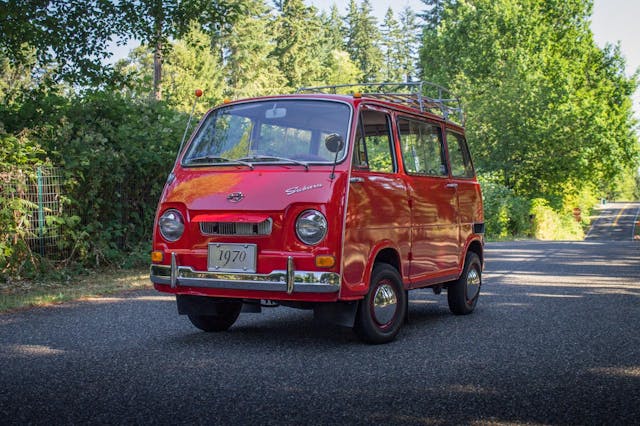
Modern Kei trucks and microvans have no problem keeping up with the normal flow of traffic—that 1999 Subaru Sambar Classic, for instance, has 54 horsepower, and is good for 70 mph. Yes, they may technically be limited to roads where the speed limit is just 35 mph, but many traffic officers will look the other way as long as a Kei isn’t holding up the show.
As in most states, you can’t register a vehicle in Florida without proof of insurance. You can insure Kei trucks, but you may have to shop around for an agent familiar with the category, Kashchuk said. “It all depends on the agent. He or she might be confused about the shorter VIN number—because it isn’t the usual 17 digits and letters like a typical U.S. car, and because they may have a model name that is not familiar to them, not in their system.” As far as financing, Japan Car FL works with several companies that make loans on Kei trucks.
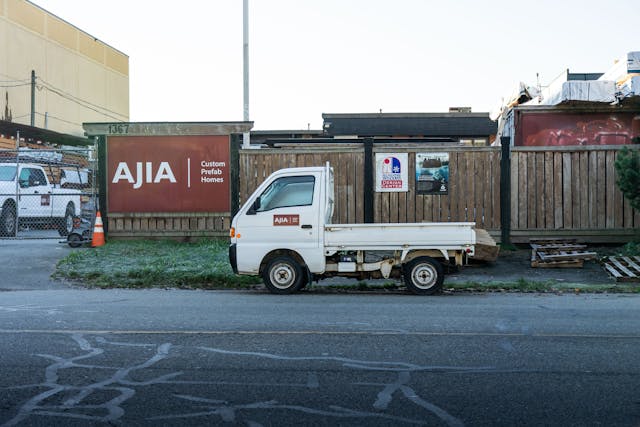
Even as states struggle to decide exactly what a Kei truck should—or should not—be allowed to do, there will likely still be a market for them, if for no other reason than because they are reasonably affordable. And cute.
Oh, and what’s happening in Rhode Island, where this confusion arguably began? Senator DiPalma is co-sponsoring legislation that would restore the ability of Kei truck owners to register their vehicles, and get license plates. That’s the good news. The bad news for Kei lovers: The new law would only apply to the 30-odd Kei trucks that are already on the road there, for use “until they can’t function anymore,” DiPalma said. There is no provision for adding any new Kei trucks to Rhode Island roads.
***
Check out the Hagerty Media homepage so you don’t miss a single story, or better yet, bookmark it. To get our best stories delivered right to your inbox, subscribe to our newsletters.
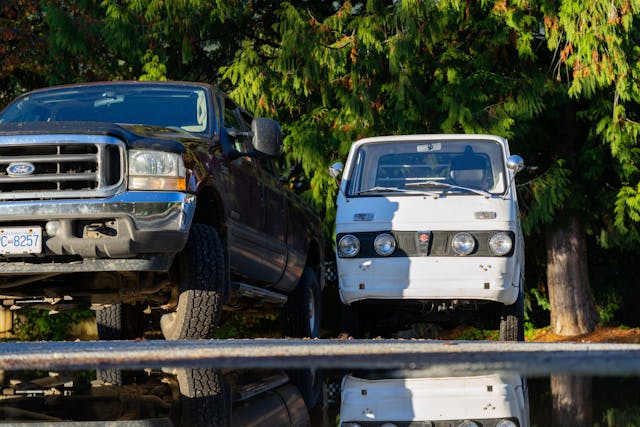


These things are obstacles and death traps. They keep making my mfg add more mass for crash regulations but they let these on the road?
It is not a motorcycle so don’t deflect there.
smart cars are half the size
Yeah sure tell that to those guys on motorcycle. Deathtrap make drivers more alert and focus on the road unlike those new big trucks full of computers “helping” distracted and ignorant drivers.
I’m guessing you don’t approve. Are they any less crashworthy than, say, a Model T?
They don’t make mfg add anything to othe 25 year and older cars, so how is this any different?
Calm down, you don’t have to drive one. It’s called freedom
No, Freedom is being able to own , title,and register a vehicle of this type!!
They just dum Chingzy chinesse truks.stewpid, ban them ore I WILL run em’ over in my Durable Duramaxx.
Yeah, ok.
Lol you know these big trucks owners usually trying to compensate you know what
Ah yes, it’s not ‘merican so I must defend this foreign threat with vehicular homicide.
My old Tacoma isn’t much bigger than a Kei (it’s lower, same width and a couple feet longer). Should I be expecting to see you trying to run me down?
These were made for the market in Asia where micro cars are often the norm and space is limited. They generally travel short distances and are perfect for their market
Here it is much different and they are just not safe to use.
When it comes to the auto industry it is not one world. Depending where you live and how you travel your needs can be greatly different.
If you have a farm and need a small truck on a large farm this could be fine but in Atlanta traffic at 5:15 PM it could be an issue.
We can get too large and too small. The key is getting right sized.
I am not sure how that small Fiat ever got past crash test. The rear seat is right against the rear window. I would never want a family member in that place.
I just saw a Hyundai wrapped around a tree last night here in Ohio. It was on a back road and no survivors. To be honest I am not sure what Hyundai it was. Granted this truck may not go that fast but there is no crumple zones if hit by something greater. You may be better off in a side by side with a roll cage.
New Hyundai or old Hyundai? Auto or manual tbh most accidents now happened because most drivers now are more focus on looking on their phone instead of the road, they expect to their driving “aid” save their lives. Go back to basic teach new driver drive LOW power MANUAL cars before they can drive or own bigger powerful cars. You will see the number of accidents well reduce.
Disruptive innovation starts at the bottom, both in terms of overall features and in terms of price, where the disruptor provides only the key features that their core customers want. Kei trucks are definitely a threat to the big automakers, especially those who make pickups explicitly for this reason. Fleet and farm buyers need functionality and Kei trucks seem to have that in spades (except for towing), for significantly lower purchase and running cost than a full sized vehicle.
Just like how the Ford Maverick had a years long waitlist for the hybrid when it first launched or how electric cargo vans with only 100 miles are gobbled up by urban and suburban delivery fleet customers, Kei trucks definitely cannot do everything, but what they can do and for their price they are quite an amazing combination!
I always wondered why cars must be crash tested and motorcycles and scooters don’t.
Looks safer–and much cheaper than a side x side ATV. Our NW WI lake is full of side x sides that never see a trail and $30-40K. They don’t fare well in a wreck. Am starting to see a couple of Kei trucks. I’m interested! Already have two 660 Suzuki four stroke engined Arctic Cat sleds. Obvious that these are Kei car motors-
Easy. Legalize them wholesale, and stop whining.
These are massively safer than all the broken crap on the roads in Michigan with no smog or safety checks. Much more safe than all the antique vehicles that came out from before seatbelts, mirrors, or airbags were mandatory. They have so much more visibility than the absolute monster trucks sold out there that you won’t run over a little kid and not even know it. They’re also less obnoxious and safer and more useful than any mptorcycle too. I see no issues with them except I could buy one of those over a used s10 if I want a useful truck. The big automakers aren’t losing a sale either because I’d never buy an f150 anyway.
Any motorcycle? Give me a break. I find my motorcycle way more useful and more efficient in a lot of situations than a car. Anytime you want see who can get across town quicker call me and bring your car.
Slight correction: Rhode Island is not the cause of this. In 2021, the American Association of Motor Vehicle Administrators issued guidance to all 50 states to ban all gray market imports based on the fact that they were not built to American safety standards.
Maine was the first state to comply in 2021, then Rhode Island followed suit. Maine banned all imports while Rhode Island just targeted Kei trucks. The state started revoking plates in 2021. It’s only trying to finish the job now with the final 30.
Not for freeway use but otherwise extremely practical.
Certainly not for freeway use but for all of the roads around where I live and the things I need a pickup for these are the affordable answer. We don’t all need huge trucks with all the bells and whistles and no one makes a truck like the early Datsuns or Toyotas of the early 70’s. Those were when trucks were practical and sized for the job at hand.
A friend ran up against the DMV stupidity when trying to register his Austin Mini pickup. Not a JBM import, not even a Japanese vehicle, and legal to register anywhere. They saw the words Mini and pickup and refused to go any further.
I see no problem with Kei cars. There are afar more unsafe vehicles on the road of various vintage or two-wheeled varieties. Knowing a few owners here and what they are capable of they can do just fine on our roads. It’s ignorance on the part who don’t know or understand these things which causes legislators to not allow them. If they are 25+ years old according to existing laws they should be allowed, period.
I agree. Ignorance is more common than common sense.
There are heaps of them on Norfolk Island. They do a great job.
I wonder what they were thinking in the 50s and 60s when BMW Isettas, Messerschmitts, Subarus, DAF Daffodils and other bubble cars were being sold and operated along side Cadillacs and other slightly larger vehicles. Some Cadillac dealers gave away Isettas in the trunks of Cadillacs and still the bubble cars were driven on public roads. Hummmmmm.
Yeah, they should have just banned the excessively large Cadillacs.